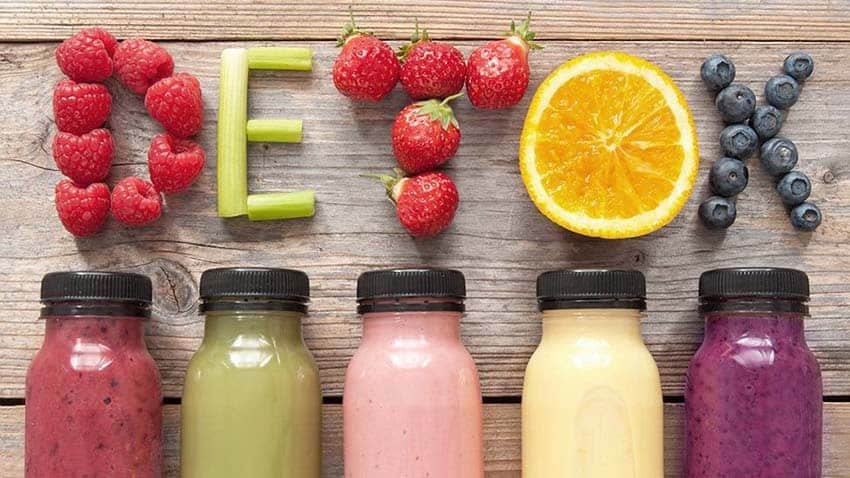What Are Detox Diets?
Detox diets typically involve a period of dietary restriction, where participants are asked to eliminate certain foods or substances from their diet and consume specific foods, drinks, or supplements that are believed to assist in the detoxification process. Detox diets can vary widely in their recommendations and duration but are often centered around:
- Eliminating processed foods: Many detox diets encourage the removal of processed foods, sugar, alcohol, caffeine, and other artificial additives, which are believed to contribute to the body’s toxic burden.
- Fasting or calorie restriction: Some detox diets advocate for fasting, limiting caloric intake, or eating only certain types of foods (e.g., fruits and vegetables, raw foods, or juicing).
- Consuming “detoxifying” foods or supplements: Popular detoxifying foods include leafy greens, lemons, cucumbers, ginger, turmeric, and detox teas. Supplements and herbs such as dandelion root, milk thistle, or activated charcoal are also commonly included.
- Drinking large amounts of water or specific detox drinks: Hydration is emphasized, as water is believed to help flush toxins from the body. Some detox plans recommend drinks like lemon water, green juices, or detox teas.
These diets are typically short-term, lasting anywhere from a few days to a few weeks, and are often marketed as a way to “reset” your body, improve energy levels, and even jumpstart weight loss.
The Claims Behind Detox Diets
The key claims made by proponents of detox diets include:
- Toxin elimination: Detox diets are believed to help remove toxins that have accumulated in the body, often from environmental pollutants, processed foods, or alcohol consumption. The idea is that the body needs a periodic “cleanse” to rid itself of these harmful substances.
- Weight loss: Detox diets are frequently marketed as a quick way to lose weight. This is usually attributed to a combination of reduced calorie intake and the purported detoxification process.
- Increased energy levels: By removing toxins from the body and adopting healthier eating habits, detox diets claim to improve energy, reduce fatigue, and enhance overall vitality.
- Improved digestion: Detox diets often emphasize fiber-rich foods, which are said to support digestive health and promote regular bowel movements.
- Clearer skin: Some detox programs claim to reduce inflammation in the body, leading to clearer, healthier skin.
- Mental clarity: Detoxing is also said to help clear mental fog, improve focus, and increase cognitive function.
The Science Behind Detoxification
One of the central ideas behind detox diets is that the body accumulates toxins over time from environmental exposure, poor diet, and lifestyle choices. The belief is that a detox diet can help the body “flush out” these toxins and restore health. However, this concept requires some scrutiny.
The Body’s Natural Detoxification Systems
The truth is that the body already has highly efficient systems in place for detoxification. The liver, kidneys, lungs, and digestive system work tirelessly to filter out waste and neutralize harmful substances. The liver, for example, processes toxins and converts them into water-soluble compounds that can be excreted through urine or bile. The kidneys filter blood and remove excess waste and toxins through urine. The skin, through sweating, also helps expel certain toxins.
When it comes to detoxification, these organs rely on regular, balanced nutrition, hydration, and adequate rest. Essentially, your body already has a built-in detox system, and no special diet is necessary for it to function properly. Therefore, the idea that a detox diet is required to “flush” toxins out is misleading, as the body continuously detoxifies itself without the need for drastic interventions.
Evidence Supporting Detox Diets
While there’s no scientific evidence to support the idea that detox diets are necessary or particularly effective in removing toxins, some aspects of these diets may offer indirect benefits. For instance:
- Increased hydration: Many detox diets emphasize drinking large amounts of water or hydrating beverages like herbal teas or lemon water. Staying properly hydrated is essential for kidney function, digestive health, and overall well-being.
- Elimination of processed foods: Many detox plans focus on eliminating processed foods, which are often high in sugar, unhealthy fats, and additives. Cutting out processed foods and consuming more whole foods can improve nutrient intake and support long-term health.
- Encouraging fiber-rich foods: Detox diets often recommend eating fiber-rich foods like fruits, vegetables, and whole grains. These foods can improve digestion, support gut health, and help maintain regular bowel movements.
However, the purported benefits of detox diets, such as rapid toxin elimination or dramatic improvements in energy and mental clarity, are largely unsubstantiated by research.
Potential Benefits of Detox Diets
Although detox diets may not be the miracle solution they’re often marketed as, there are some potential benefits that might result from the dietary changes they promote:
- Improved Digestion and Gut Health: Detox diets often prioritize fiber-rich foods, which support healthy digestion by promoting regular bowel movements. This can help alleviate constipation and improve gut microbiome diversity.
- Weight Loss: Many detox diets are low in calories, and this calorie restriction can lead to temporary weight loss. However, much of the weight loss is likely due to water loss or a reduction in food intake, rather than fat loss.
- Reduced Inflammation: Detox diets that focus on plant-based foods, antioxidants, and anti-inflammatory ingredients (such as turmeric or ginger) can help reduce inflammation in the body, which may lead to improvements in conditions like arthritis or digestive issues.
- Improved Hydration: Drinking more water and hydrating beverages can support kidney function, skin health, and overall wellness.
- Psychological Benefits: Some people may find that following a detox diet helps them feel more in control of their health, especially if it encourages them to cut back on unhealthy habits or take a more mindful approach to eating.
Risks and Drawbacks of Detox Diets
While some people may experience short-term benefits, detox diets also come with a range of potential risks:
- Nutrient Deficiency: Many detox diets involve cutting out entire food groups (such as dairy, meat, or grains) or restricting calorie intake. This can lead to deficiencies in essential nutrients like protein, vitamins, and minerals, potentially compromising long-term health.
- Dehydration: Some detox plans include the use of diuretics or laxatives to “flush” toxins, which can lead to dehydration and imbalances in electrolytes, such as sodium and potassium. This can have serious consequences for heart and kidney health.
- Muscle Loss: Prolonged calorie restriction or fasting can result in muscle breakdown, particularly if the diet is not adequately balanced with protein and other nutrients.
- Mental and Physical Stress: Detox diets can be challenging to follow, especially those that involve extreme restrictions. The mental and physical stress of adhering to a strict regimen may lead to feelings of frustration, irritability, or even disordered eating patterns.
Conclusion: Do Detox Diets Really Work?
While detox diets may offer some temporary benefits—such as weight loss or improved digestion—they are not necessary for detoxification, as the body already has highly effective systems in place to filter out toxins and waste. Instead of focusing on restrictive, short-term detox plans, it’s better to prioritize a balanced, sustainable approach to health. This includes:
- Eating a varied, nutrient-rich diet with plenty of fruits, vegetables, whole grains, and lean proteins.
- Staying well-hydrated.
- Getting regular exercise.
- Getting enough sleep.
- Managing stress.
These lifestyle choices can support the body’s natural detoxification processes and promote long-term health without the need for extreme or fad diets. If you do choose to try a detox diet, it’s important to approach it with caution, ensuring that it’s balanced and doesn’t compromise your nutrient intake or overall well-being. And, as always, it’s wise to consult a healthcare professional before making significant changes to your diet, especially if you have underlying health conditions.































